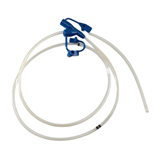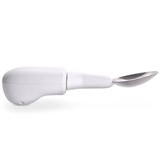"Teaching mums the correct way to prepare and store infant formula is vital to avoid babies having adverse outcomes such as bacterial infections, diarrhoea, hypernatraemia and under nutrition," nursing and midwifery lecturer Lisa Wirihana said.
"Breastfeeding mothers tend to be given ample information and encouragement, and they are also provided with helplines and support after leaving hospital, as they should be.
"In most cases the bottle feeding education received in hospital by the women who took part in my study came in the form of a pamphlet or book they were advised to read."
Wirihana conducted in-depth interviews with seven bottle feeding mothers for her Masters research project.
"All of the women said they had experienced a lack of post-natal education regarding bottle feeding, and little or no opportunity to be able to practice making up a bottle, indicating a need for further research to examine how widespread this issue is," she said.
Wirihana said that breastfeeding was definitely the best option for both the mother and the newborn, but for a variety of reasons, approximately one in five women bottle fed at the time of discharge from hospital.
"By six months of age up to 82 per cent of babies are not fully breastfed," she said.
"Largely, the women in this study were very happy with the care that they received from midwives. Only two of the women in the study perceived they hadn't been supported by healthcare professionals while they were in hospital."
However, Wirihana said it was possible that the women's assumptions about how health care professionals, as well as society, viewed bottle feeding played a role in the level of education they received.
"Some women in the study felt uncomfortable asking for help. They felt that others assumed bottle feeding was easy and that the mothers should already know how to do it," she said.



